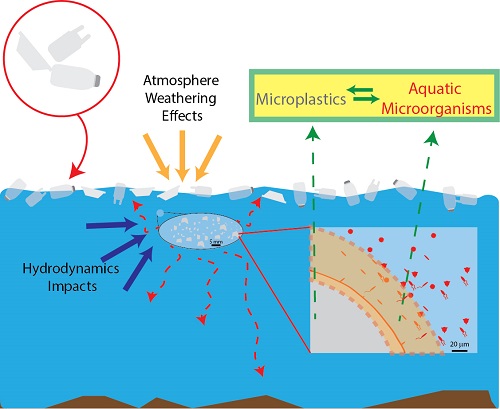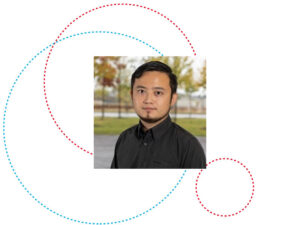Irvine Ong, postdoctoral researcher within the Department of Physics and Materials Science at the University of Luxembourg has been recently awarded the Marie Curie Individual Fellowship from the European Commission. With a budget of 178 320 euros for two years, Irvine will work on microplastic-microbe interactions.
Biophysicist
Native of Singapore, Dr. Irvine Ong started his postdoctoral research in September 2019, at the Physics of Living Matter Group. Prior to joining Prof. Anupam Sengupta’s lab, Irvine received his PhD from the National University of Singapore (NUS) in 2016, followed by a short stint at an NUS-based startup, and then in February 2018, Irvine moved to the École Polytechnique Fédérale de Lausanne (EPFL, Switzerland) for his first postdoctoral research. In summer 2019, Irvine teamed up with Prof. Sengupta to put his broad scientific interests – ranging from biosensing based on liquid crystals to applied microfluidics for medical processes – into concrete plans. With a strong appreciation and interest in addressing fundamental questions of direct socio-environmental relevance, Irvine took a leap into biophysics by starting to look at the interactions between microplastics and microorganisms.

BIOMIMIC project
Combined with Sengupta Lab’s expertise in innovating micro-scale biophysical approaches, Irvine has been granted the Marie Skłodowska-Curie Actions –Individual Fellowship (MSCA-IF) for the project BIOMIMIC. Through BIOMIMIC (BIOphysics of MIcrobe-Microplastic Interactions & Colonization), Irvine will build a highly multi-disciplinary approach to tease apart the intricate and dynamic relationships between microplastics – micro-scale pollutants teeming our biosphere – and microorganisms, all within the Group’s ocean-mimicking experimental set ups. Irvine hopes that ultimately his research will propel sustainable bioremediation solution for this yet-to-be-addressed issue. Given the vital role of microbes in maintaining the bio-geo-chemical cycles, the goal of Irvine’s MSCA-IF is to delineate the mechanistic underpinnings of one of the biggest environmental issues of the present day. “It’s a challenging project – that spans multiple scales and disciplines – however with the expertise in Sengupta Lab, and the support of a vibrant cross-disciplinary research ecosystem in Luxembourg, I am confident of breakthroughs in this highly innovative project”, says Irivine.
